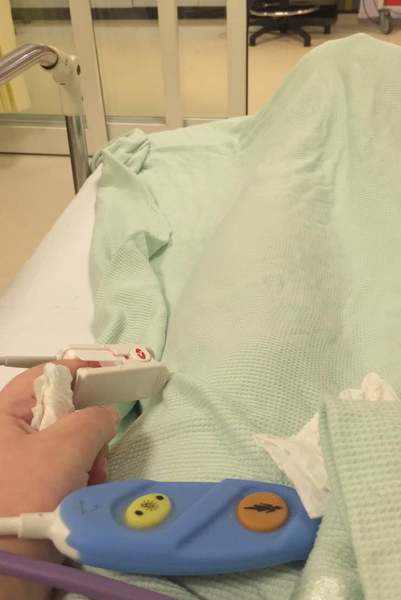To the Woman Who Doesn't Understand Why I Was Seen Before Her at the Emergency Room
First of all, I want to say I hope your visit to the emergency room was as quick and as painless as possible. I hope you’re OK and are no longer ill or in pain. In other words, I hope you find yourself in the complete opposite position I’m currently in. And while I wish you well, there’s something I need to get off my chest.
Yes, you arrived at the ER waiting room before I did. And yes, you had been waiting for a long time. And yes, I was seen before you. But did you know there’s a protocol in place at ER departments? It’s something called the triage system. It’s a simple concept really: You get seen briefly when you first arrive, and a nurse decides how sick you are. Are you dying? Are you not dying? Are you there because you didn’t want to wait two days for a primary doctor’s appointment? Either way, you’ll be seen by a doctor at some point. But do you know what this system means? It means the sicker you are, the faster you’ll get seen.
While you were sat with your husband and friend with a warm cup of tea you had just received from a care assistant, I was sat next to my father and was genuinely worried for my life.
You see, I didn’t have the luxury of being able to drink a nice warm cup of tea with a biscuit like you. For the past eight days, I had been vomiting, constantly without break, which meant I didn’t drink or eat anything in more than a week. And while you were looking at a magazine, I couldn’t even keep my eyes open for more than 10 seconds at a time due to the brightness of the lights, which caused excruciating and searing pain in my head.
I know how horrible it can be to wait for hours on end in hospitals. I’ve done it plenty of times myself in my 18 years. I’ve been sick from the moment I was born, and visiting hospitals has become a normal part of my life. So I know how irritating it can be to see other people get treated before you. It’s happened to me countless times, too.
But do you know what? The fact that you’re waiting means you aren’t dying. It means you can afford to be kept waiting. It means you’re well enough to sit with your cup of tea and family for a little while longer.
I would have preferred to wait for two hours, instead of being rushed into the ER. I was placed on a heart monitor and stuck with more needles than I could count in each arm and hand. Fluids, antibiotics and antivirals were forced through my veins so quickly that it felt like my blood was boiling. I was given chest X-ray, and the doctors told me they were worried about my heart.
When doctors start saying things like pulmonary embolism, meningitis, endocarditis and tuberculosis, you start to panic and wish you were still in the waiting room.
The point of this isn’t to make you feel bad about what you said, because at the end of the day, I don’t know you or why you ended up in the emergency room, just like you didn’t know why I was there. It could just have been something you said out of fear for yourself.
But the point is to make you think. While waiting isn’t an enjoyable experience, it most likely means you aren’t dying. And I would take that any day.
When it comes down to it, you can never really know why someone else is at the hospital at the same time as you. So the next time you end up in the ER waiting room, although I hope that doesn’t happen any time soon, please think twice before complaining, and perhaps take a moment to pray for the person being rushed through if you are so inclined. Or offer them a friendly smile to show some encouragement. Or just think, and be thankful, you aren’t that sick. Do anything you feel is appropriate, but please don’t begrudge them for being seen first.
The Mighty is asking the following: Write a letter to anyone you wish had a better understanding of your experience with disability and/or disease. If you’d like to participate, please send a blog post to community@themighty.com. Please include a photo for the piece, a photo of yourself and 1-2 sentence bio. Check out our Share Your Story page for more about our submission guidelines.


